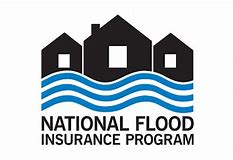Growing challenges
 2020 is presenting growing challenges to the property insurance market. Competition is keeping rates low, reinsurance costs are rising, there’s loss creep from Hurricanes Irma and now Michael, plus a backlog of claims litigation craziness as we introduced at the beginning of this newsletter. Some pushback and insight in this week’s Insurance Digest.
2020 is presenting growing challenges to the property insurance market. Competition is keeping rates low, reinsurance costs are rising, there’s loss creep from Hurricanes Irma and now Michael, plus a backlog of claims litigation craziness as we introduced at the beginning of this newsletter. Some pushback and insight in this week’s Insurance Digest.
Summary Judgment Standard: The Florida Bar has joined the chorus of organizations asking the Florida Supreme Court to adopt the federal Celotex standard for summary judgments in all civil claims. The standard allows a case to proceed to trial only if there’s enough evidence for jurors to reasonably find for the party not seeking the summary judgment. Florida is one of the few states that hasn’t adopted the rule.
“We want a fair standard that allows our clients to put their case forward when they have a case. And if there isn’t a case, then somebody shouldn’t be able to artificially keep it in litigation when there’s no reason to do that,” said Manuel Farach, one of the lawyers representing the Bar, in this Daily Business Review article.

Justices of The Florida Supreme Court
Lawsuit Lending: The Florida House Civil Justice Subcommittee held a workshop last month to consider whether to impose stricter regulation on third-party lending to plaintiffs pursuing lawsuits. Among those testifying was the Florida chapter of the National Federation of Independent Business, who warn the practice is a potential perversion of the legal system.
““Rather than helping injured parties recover losses, the loans discourage plaintiffs from settling out of court, even when they’re unlikely to win at trial while driving up the cost of running a small business,” said the NFIB’s Tim Nungesser, in this Florida Record article.
Public Adjusters as Appraisers: The tide may be turning on the common practice of public adjusters appointing themselves as appraisers in handling claims cases for their insurance policyholder clients. Attorney Chip Merlin notes in his blog that a growing number of Florida courts are catching on, ruling that a public adjuster cannot later be appointed the insured’s disinterested appraiser where there is a contingency-fee arrangement. “Disinterested” and “Contingency Fee” cannot co-exist!
Reinsurance Renewals Pricing: As we noted at the top, reinsurance costs for insurance companies are rising. Guy Carpenter notes in their recent briefing Reinsurance Renewals Reflect Asymmetrical Market that both sectors are going through a period of transition as risk appetites – and pricing – reflect new data and elevated losses from recent catastrophes.
 NFIP Reauthorization & Reinsurance: In case you missed it over the holidays, Congress reauthorized FEMA’s National Flood Insurance Program (NFIP) on a short-term basis through September 30 of this year. FEMA also purchased reinsurance for 2020, transferring $1.33 billion in risk to 27 private companies. FEMA paid $205 million for this coverage, which would trigger if NFIP losses from a single flood event exceed $4 billion. NFIP 2017 claims data, shows the average claims payout was $110,815, a record at that point for the 40 year-old federal program.
NFIP Reauthorization & Reinsurance: In case you missed it over the holidays, Congress reauthorized FEMA’s National Flood Insurance Program (NFIP) on a short-term basis through September 30 of this year. FEMA also purchased reinsurance for 2020, transferring $1.33 billion in risk to 27 private companies. FEMA paid $205 million for this coverage, which would trigger if NFIP losses from a single flood event exceed $4 billion. NFIP 2017 claims data, shows the average claims payout was $110,815, a record at that point for the 40 year-old federal program.
NFIP Issues in Congress: Two days before Christmas, the Congressional Research Service issued a 50+ page report about flood insurance, covering topics such as the mandatory purchase requirement, affordability, and availability, including discussions about private flood insurance as an alternative to the federal flood insurance program. We share The National Flood Insurance Program: Selected Issues and Legislation in the 116th Congress so our readers who follow this very important emerging insurance market are aware, as it appears many of these topics will once again be taken into consideration when Congress reconvenes for its 116th session.
As always, you can find these resources on our Lisa Miller & Associates Flood Insurance & Resilience webpage, which we regularly update.
LMA Newsletter of 1-6-20

